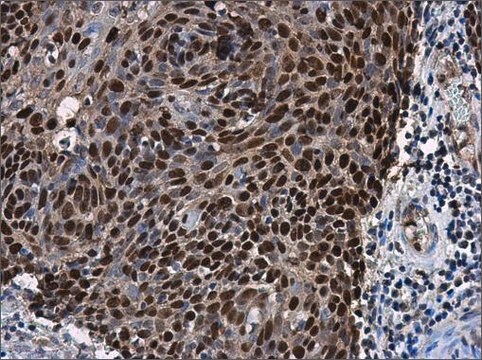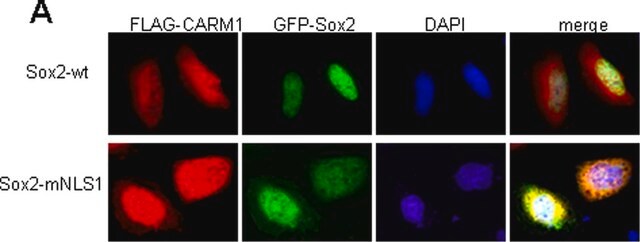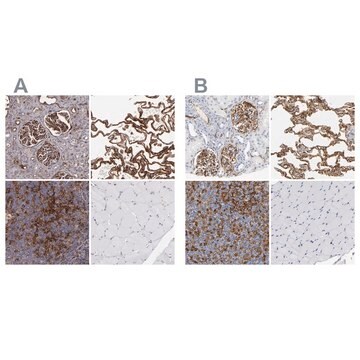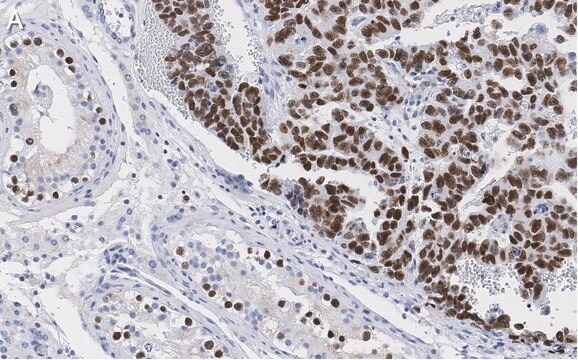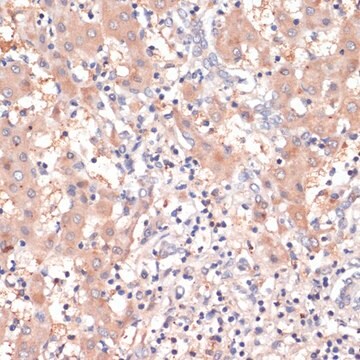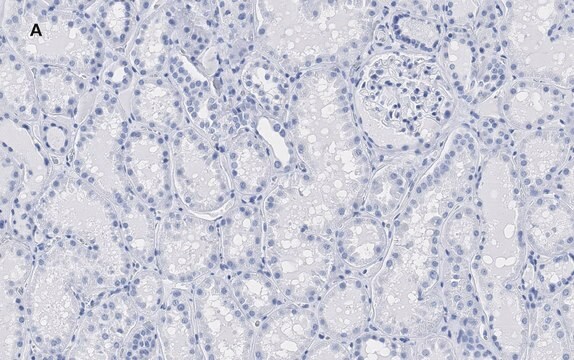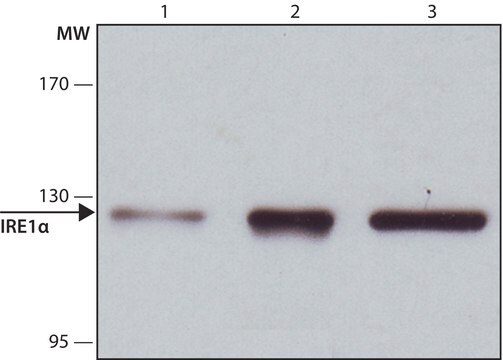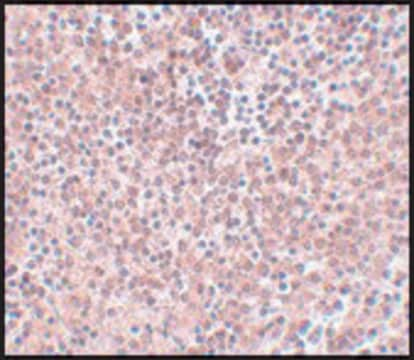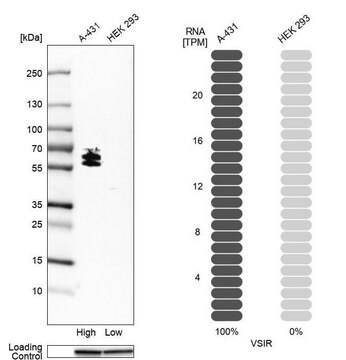N3038
Monoclonal Anti-Nanog antibody produced in mouse
clone NNG-811, purified from hybridoma cell culture
Sinónimos:
Anti-NANOG/STM1
About This Item
Productos recomendados
biological source
mouse
conjugate
unconjugated
antibody form
purified immunoglobulin
antibody product type
primary antibodies
clone
NNG-811, monoclonal
form
buffered aqueous solution
mol wt
~40 kDa
species reactivity
human
packaging
antibody small pack of 25 μL
concentration
~2 mg/mL
technique(s)
immunocytochemistry: suitable
immunoprecipitation (IP): suitable
indirect ELISA: suitable
western blot: 4-8 μg/mL
isotype
IgG1
UniProt accession no.
shipped in
dry ice
storage temp.
−20°C
target post-translational modification
unmodified
Gene Information
human ... NANOG(79923)
General description
Nanog controls the expression of many ESC genes together with other stem cell transcription factors like Oct-4 and Sox-2. Nanog targets both repressor and activator complexes to regulatory regions of hundreds of genes in the genome. Expression of nanog can be detected primarily in germ cell tumors and in tumors of other cell types. Nanog is an important marker for Seminomas, testicular carcinomas, teratocarcinomas, and germ cell-like tumors in various tissues. Furthermore, it was shown to transform NIH3T3 cells.
Specificity
Immunogen
Application
- enzyme-linked immunosorbent assay (ELISA)
- immunoblotting
- immunocytochemistry
- flow cytometric analysis
- immunoprecipitation
- immunofluorescence
Immunoblotting: a working antibody concentration of 2-4 mg/mL is recommended using extracts of NT2 cells.
Physical form
Disclaimer
¿No encuentra el producto adecuado?
Pruebe nuestro Herramienta de selección de productos.
Optional
related product
Storage Class
10 - Combustible liquids
wgk_germany
WGK 3
flash_point_f
Not applicable
flash_point_c
Not applicable
ppe
Eyeshields, Gloves, multi-purpose combination respirator cartridge (US)
Elija entre una de las versiones más recientes:
¿Ya tiene este producto?
Encuentre la documentación para los productos que ha comprado recientemente en la Biblioteca de documentos.
Nuestro equipo de científicos tiene experiencia en todas las áreas de investigación: Ciencias de la vida, Ciencia de los materiales, Síntesis química, Cromatografía, Analítica y muchas otras.
Póngase en contacto con el Servicio técnico